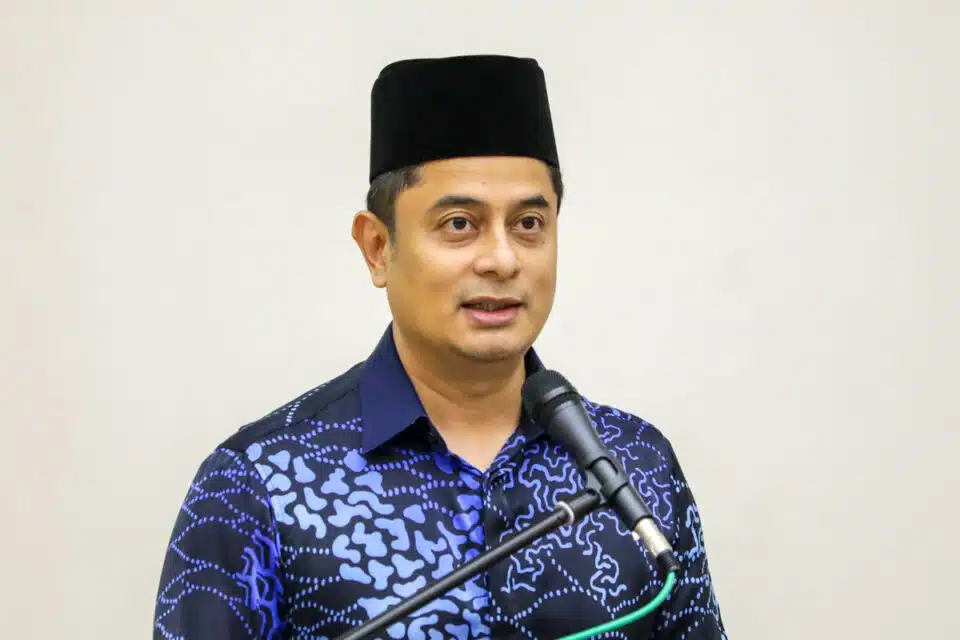KUALA LUMPUR, Sept 29 — Drawing lessons from past fires at tahfiz centres, experts said these are often forgotten with time.
Last July, a tahfiz hostel occupied by 20 male students in Kampung Medan, Teluk Panglima Garang in Kuala Langat, was destroyed in a fire. Although the tahfiz school was registered with the Selangor Islamic Religious Department (Jais), similar incidents have occurred.
Experts said strengthening the governance of private tahfiz centres, which have been mushrooming across the nation over the years, is crucial in the digital age.
It is estimated that 1,000 private tahfiz centres are unregistered nationwide, while in Selangor alone, 800 are not registered, causing Sultan Sharafuddin Idris Shah to direct all tahfiz schools in the state to be registered through a “whitening” scheme.
But what’s worrying is that the state continues to be plagued by unregistered tahfiz centres despite various initiatives to improve registration guidelines.
Since 2019, the state government has taken proactive measures via the whitening programme guidelines, which were approved at the Selangor State Planning Committee Meeting in December 2020.
The guidelines for tahfiz schools in Selangor were enforced on January 1, 2021, to ensure the safety and wellbeing of students and staff in light of the fire at the Darul Quran Ittifaqiyah Tahfiz Centre in Kampung Datuk Keramat here that claimed 23 lives in 2017.
However, there appears to be no end in sight to resolving the unregistered tahfiz issue, said experts interviewed by Bernama, and the guidelines, which were considered “stringent” by tahfiz owners, should be further fine-tuned.
Simplifying the registration process
Universiti Sains Islam Malaysia Quranic and Sunnah Studies senior lecturer Zainora Daud told Bernama the guidelines may make it difficult for owners to register their tahfiz schools.
“Relevant parties’ engagement in addressing the issue is crucial. For example, in Selangor, tahfiz centres here are far more active than in other states, including their associations, and as such, this whitening (registration) process should be simplified,” she said.
Persatuan Institusi Tahfiz Al-Quran Negeri Selangor (Pitas) chairman Muhamad Hafiz Muhamad Haneefa also stressed the importance of improving guidelines under the tahfiz whitening programme to ensure the survival of existing tahfiz or private religious schools in Selangor.
At present, several parties including Jais and PBTs are in the process of simplifying the existing guidelines for the owners to register their premises.
Among the improvements, tahfiz centres are required to have basic safety features including ladders and fire extinguishers that are easily accessible and visible.
“The guidelines (for the improved whitening programme on registration) are now being finalised and are expected to be submitted to the state government by early next year.
“We hope that starting next year, all tahfiz centres can start registering their premises,” he said, noting that Pitas is directly involved in the whitening programme.
Empowering tahfiz schools
State executive councillor for Islamic affairs, halal industry, infrastructure, science, technology and innovation Dr Fahmi Ngah told Bernama the Selangor government is committed to helping private religious institutions register and continue to operate in the state.
In fact, he gave his assurance the state government will continue with the whitening process of tahfiz centres to ensure they comply with the standard operating procedures.
At the same time, parents should be cautious and not put their children at risk by ensuring tahfiz centres are registered with Jais to avoid any untoward incident from taking place.
“We will ensure these institutions are registered to facilitate monitoring and channelling of funds. If they are not registered, problems could arise and we understand the concept of doing business — low on cost but quick on returns,” said Fahmi.
Dumping ground for problem students?
Secretary-general of the Muslim Students Association of Selangor Nabil Nur Akmal said, besides focusing on tahfiz whitening programme, a guideline on the intake of students for tahfiz or private religious schools should be drawn up.
This, he said, is to change people’s negative perception towards such institutions as a place for problematic students alone.
“Among the components that can be used as guidelines are intellectual potential, physical wellbeing and behaviour of students, in line with the National Education Philosophy, which is still being referred to until today.
“The state government should also call on private tahfiz centres and religious schools to apply for accreditation for their teachers, while the authorities should monitor the syllabus to prevent aqidah (faith) deviation,” he said.
— Bernama





